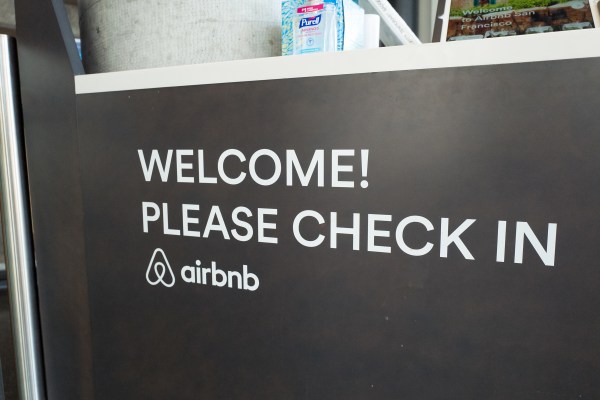Today after the bell, home rental giant Airbnb reported its Q4 2021 performance. Its numbers detail a company that endured an awful start to the COVID-19 era, survived, and has come out the other end of demand disruption in perhaps better health than it entered.
The company’s profitability and improved revenues when compared to 2019 are a somewhat stark contrast to recent layoffs at Hopin. Hopin, a company that provides software that supports virtual or hybrid events, saw demand for its service soar at the same time when Airbnb was seeing its own operating results deteriorate. And this week Hopin cut a double-digit percentage of its staff.
The pandemic giveth, and then pandemic taketh away. Or perhaps it taketh away, and then re-giveth. You get the idea.
Let’s chat through Airbnb’s quarterly results’ highlights and our occasional quibble as we digest a world for technology companies that appears increasingly like the pre-pandemic days.
Airbnb’s Q4
In the fourth quarter, Airbnb saw $11.3 billion worth of total platform activity (GMV), which led to revenues of $1.53 billion, and net income of $55 million. For the full 2021 period, Airbnb recorded $46.9 billion worth of platform activity, $6.0 billion in total top line and a net loss of $352 million.
Analysts had expected Airbnb to report $1.46 billion in top-line for the fourth quarter, and adjusted earnings per share of $0.03 — Yahoo Finance pegs the company’s adjusted EPS at $0.08 for the quarter, so Airbnb racked up a top-and-bottom beat in the fourth quarter. The company also beat GMV expectations by around $200 million.
That all looks good, yeah? Well, there are some reasons to be modestly critical of the company’s financial performance. Let’s chat lesser results and then consider how far Airbnb has come from its own pandemic low when it cut staff and took on expensive capital to ensure its survival.
OK, let’s get mean
Some might find it in poor taste to dig up the less salubrious bits of an earnings report that was generally positive, especially when the company in question’s stock is up in after-hours trading. To which we say, what’s life without a little nitpicking?
Shares of Airbnb rose 6% during regular hours, and another 4% after its earnings dropped. The street is happy.
The other side of the sunny Airbnb coin includes the following:
- The company’s “Nights and Experiences Booked” metric is in decline when compared to 2019 results; this means that while Airbnb is posting strong year-over-year numbers, its 2021 results saw four quarters of results that included, respectively, 21%, 1%, 7% and 3% fewer total bookings than their 2019-era comps.
- The same “Nights and Experiences Booked” result for the company peaked in Q2 2021, and fell sequentially in both quarters three and four of last year.
- Airbnb’s net income fell from $834 million in Q3 2021 to the above-noted $55 million result in Q4.
There are obvious rejoinders to all of the above. They are as follows:
- Yes, nights booked is in decline, but Airbnb’s “Gross Booking Value per Night and Experience Booked” was up in every quarter of 2021 when compared to 2020, and also 2019.
- Also the company tends to see fewer Q4 bookings than Q3 bookings, so Airbnb’s most recent sequential declines could merely be seasonal. Also, Omicron.
- In Q4 2019, Airbnb had negative net income, so to whine strenuously about a sequential decline in Q4 2021 net income when compared to Q3 2021 is a bit rude.
You can vet the positives and negatives as you will, we merely wanted you to have both sides.
Pandemic-era changes
The down-and-then-up route of Airbnb’s bookings shows a mix-shift of sorts in its business. Yes, bookings are down in raw number, but with the value of those bookings rising, Airbnb is now hundreds of millions of dollars worth of Q4 revenue larger than in 2019, when it posted $1.11 billion in total top line.
Our read of the matter is that the demand shift that Airbnb saw during the pandemic of folks renting units for longer, or perhaps larger units, is holding up. So, demand has changed somewhat; pricing differential is another possibility when we compare 2019 and 2021 results.
TechCrunch was curious about the company’s take-rate over time, especially through the pandemic. A first-look at the data indicates that Airbnb’s take-rate (defined as its revenue divided by its GMV, per period) indicates that 2019 and 2021 had similar results, both around the 12.7% mark. 2020, in contrast, featured a take rate over 14%. So Airbnb has managed its strong 2021 recovery despite a general decline — perhaps: regression to the norm? — in 2021. That puts a little extra shine on the data.
What’s ahead for Airbnb? We’ve not the foggiest. But we can say that sitting here today, the company appears to have recovered from COVID-19 to a place at least where we aren’t viewing its results through that particular lens. That’s an accomplishment.
